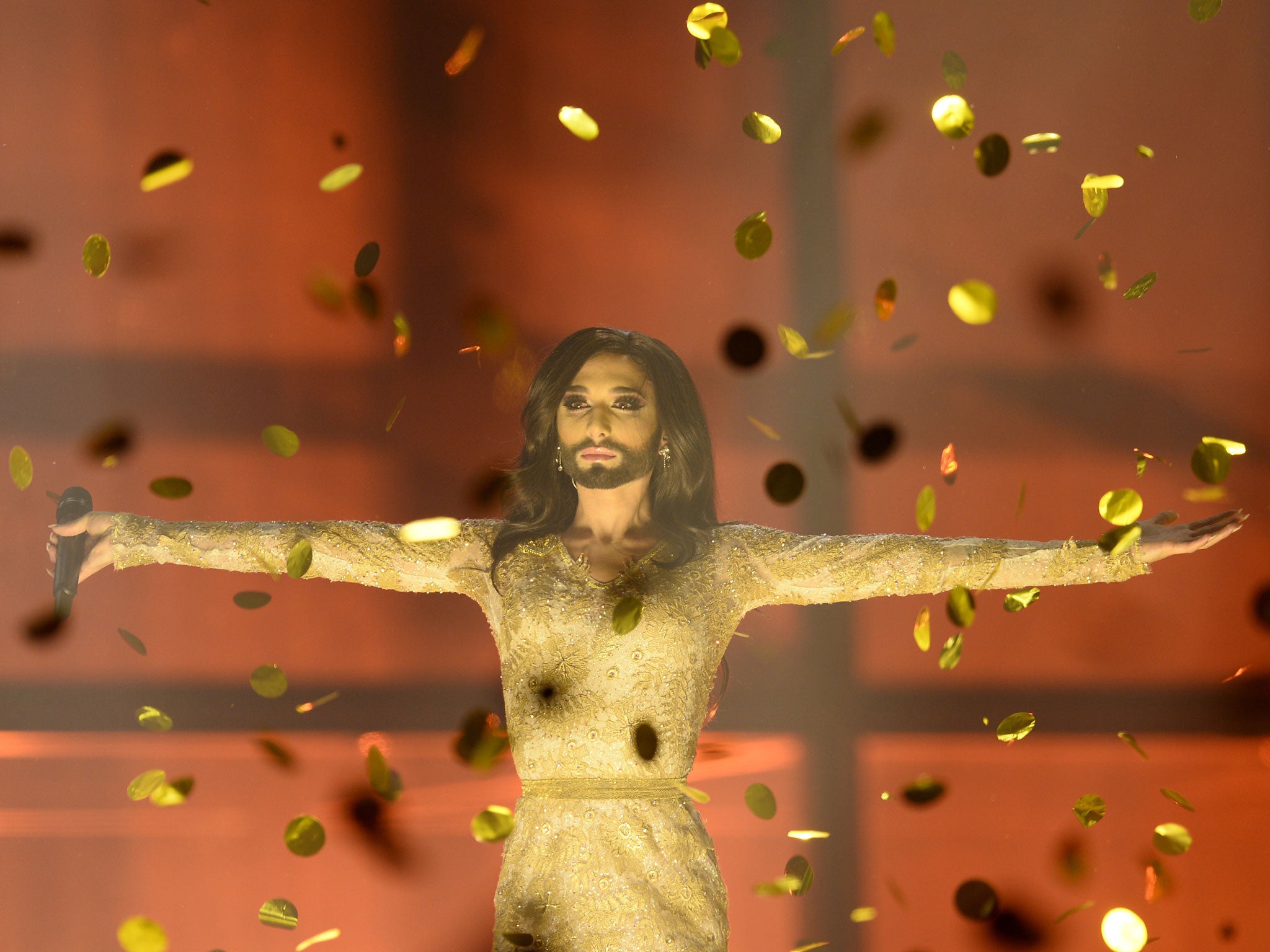Conchita Wurst 'bearded women and men' parade banned by Russian officials
LGBT activists had planned to honour the Eurovision winner and mark the 21st anniversary of the decriminalisation of homosexuality in Russia

Your support helps us to tell the story
From reproductive rights to climate change to Big Tech, The Independent is on the ground when the story is developing. Whether it's investigating the financials of Elon Musk's pro-Trump PAC or producing our latest documentary, 'The A Word', which shines a light on the American women fighting for reproductive rights, we know how important it is to parse out the facts from the messaging.
At such a critical moment in US history, we need reporters on the ground. Your donation allows us to keep sending journalists to speak to both sides of the story.
The Independent is trusted by Americans across the entire political spectrum. And unlike many other quality news outlets, we choose not to lock Americans out of our reporting and analysis with paywalls. We believe quality journalism should be available to everyone, paid for by those who can afford it.
Your support makes all the difference.Russia has banned a parade planned by LGBT activists in honour of Eurovision winner Conchita Wurst.
Moscow authorities have refused an application to hold the event in the Russian capital later this month in celebration of the Austrian drag queen’s victory, Interfax reported.
Ms Wurst, whose real name is Tom Neuwirth, has sparked controversy in Russia; she was branded a “pervert” by Russian politician Vitaly Milonov after she sang her way to victory with the song “Rise Like a Phoenix” on Saturday.
Alexei Mayorov, head of Moscow's security department, told Interfax on Thursday that the Conchita Wurst March of Bearded Women and Men was rejected due to the need to “respect the morality in the education of the younger generation”.
The Associated Press reported that there were concerns the procession would provoke clashes between gays and their opponents.
The parade was planned for 27 May, which marks 21 years since homosexuality was decriminalised in Russia. However, animosity toward gays remains strong in the country.
Organisers had previously said they would appeal against any refusal of their application and, if unsuccessful, would attempt to merge the event with a gay pride parade planned for 31 May.
But they face tough opposition; in 2012, the highest Moscow court upheld a ban on gay marches for 100 years.
Ms Wurst has been accused by homophobic Russian protesters of creating a “hotbed of sodomy” at the 59th Eurovision song contest.
Olga Batalina, Russia's deputy head of the parliamentary committee on family, women and children, said the results of Eurovision were the product of “propaganda of untraditional culture, including gay culture”.
Enjoy unlimited access to 100 million ad-free songs and podcasts with Amazon Music
Sign up now for a 4 month free trial (3 months for non-Prime members)
Enjoy unlimited access to 100 million ad-free songs and podcasts with Amazon Music
Sign up now for a 4 month free trial (3 months for non-Prime members)
Russia last year passed a law banning the dissemination to minors of so-called “gay propaganda” and routinely rejects applications to hold gay rights demonstrations.
Join our commenting forum
Join thought-provoking conversations, follow other Independent readers and see their replies
Comments